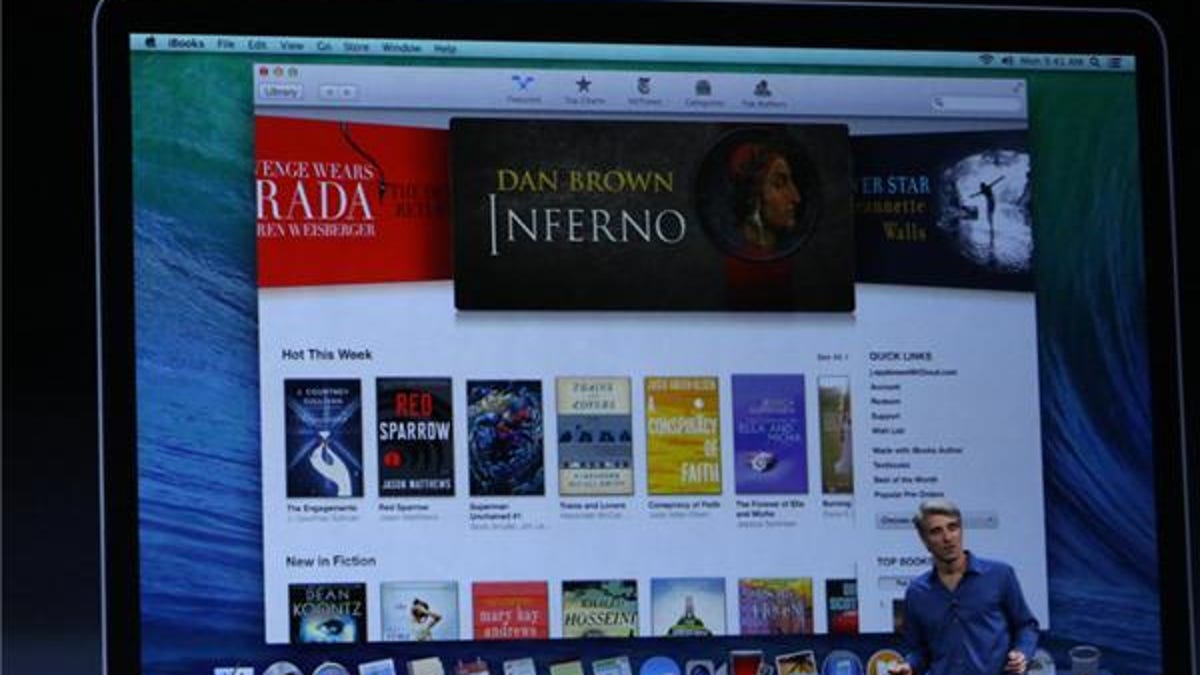Ruling against Apple won't cool broader digital media industry
Despite Apple's warnings, it's likely the only company facing a "chilling effect." And that may only be lukewarm.

Apple, during the three-week trial last month in New York, warned that a verdict against the company could have a negative impact on how deals are negotiated in the U.S.and "send shudders through the business community." Its attorneys argued that companies would have to hold "hermetically sealed" meetings so no other companies know they're taking place, and all deals would have to have very different terms.
Despite Apple's arguments, such a drastic reaction by the industry is pretty unlikely. Where Apple went wrong, at least according to the government and the court, wasn't that it took actions to establish price-matching clauses or that it negotiated with publishers in the same timeframe. Rather, Apple broke the law by serving as the ringleader in the publishers' quest to boost e-book pricing.
"While a court must take seriously a prediction that its decision will harm our nation's economy, particularly when made by skilled counsel on behalf of an esteemed company, it is difficult to see how competition will be stifled by the ruling in this opinion," District Court Judge Denise Cote noted Wednesday in her 160-page opinion that said Apple violated antitrust laws.
Cote went on to refute Apple's warning that a ruling against the Cupertino, Calif., electronics giant would set a "dangerous precedent." And she noted that her ruling applied to specific events in the e-book market from 2009 to 2010, not to the broader industry at large.However, even though Cote said many provisions in Apple's e-books contracts -- including pricing tiers with caps, price-matching clauses, and publisher-determined prices -- weren't improper, the company may feel more cautious when pursuing deals in other areas.
Apple recently unveiled a new Internet-based radio service, and it has been eyeing the TV market. Negotiating content deals for television -- or areas we don't even know about right now -- could be tougher for the company, particularly if someone is assigned to monitor Apple's actions, as the Justice Department has requested. Apple may be more hesitant to work with other tech giants or certain content partners, and it might have less leverage in its dealings.
Daniel Crane, a law professor at the University of Michigan Law School, said the ruling could set a precedent about whether dominant tech companies, like Apple, can play a coordinating role in changing an industry's business model as the world moves more digital.
"Apple, Samsung, or anyone else who's a tech player might be interested in developing another business model, but they have to be careful not to coordinate too much between industry players," he said.
Apple took pains during the trial to show how tough negotiations were with the publishers. And it argued that its dealings with publishers were legitimate and common tactics used by many companies, including its rivals in the e-books market -- Amazon, Barnes & Noble, and Google.
"What was wrongful was the use of those components to facilitate a conspiracy with the publisher defendants," Cote said.
As for consumers, not much -- if anything -- is going to change. The publishers already had reached settlements with the Justice Department and other plaintiffs, and Amazon and other e-book sellers already gained a little more flexibility with pricing.
Where consumers could luck out is if lawsuits brought against Apple by various states and consumers result in large monetary damages. Even then, the amount distributed to each individual won't be high, and the total damages -- even if reaching hundreds of millions of dollars -- will only be a relative drop in the bucket for Apple.
The district court ruling Wednesday means lawsuits by various states and consumers likely can proceed more quickly, and the plaintiffs won't have to prove Apple's guilt a second time, said Steve Berman, managing partner at Hagens Berman and the lead counsel in a proposed class action lawsuit against Apple.
"Once we receive class certification, the only issue that will remain is for a jury to assess damages, which under federal law are trebled, or tripled," he said.
However, Apple, which maintained that it has done nothing wrong, plans to appeal Cote's ruling. No matter the outcome, we likely won't see the end of this suit for quite some time.

